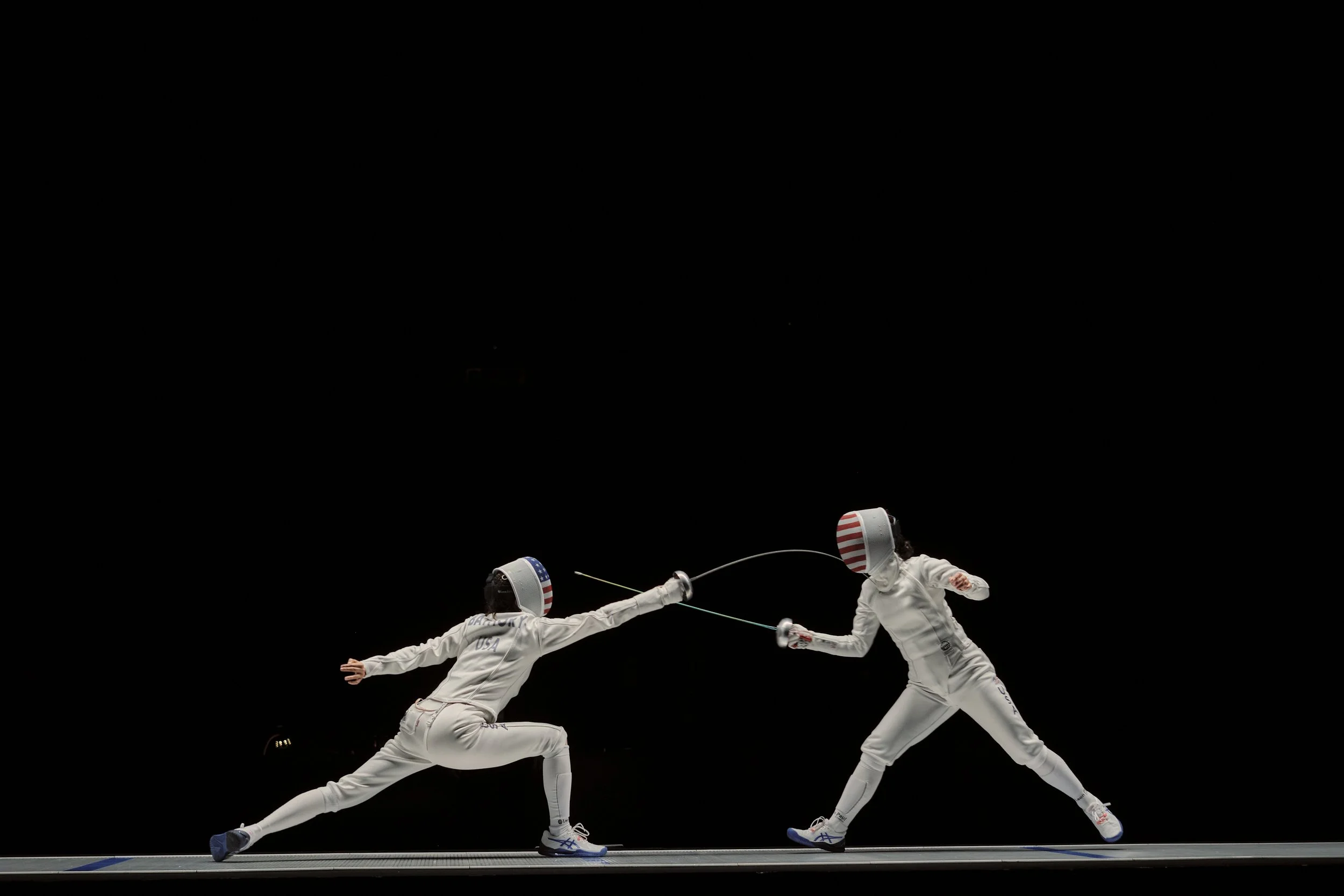Balestra: To Dream a Dangerous Dream
By John Kirk
Rating: B+
In my mind, sleep is such a waste of time. Even though it’s a physiological necessity, it also absorbs about a third of our lives. That’s a prominent and relatable theme that resonates in Balestra. What if we could turn sleep into something functional?
When fencer Joanna’s (Cush Jumbo) sleep starts to suffer, her training and her edge degrade. Her goal of winning an Olympic gold medal ebbs away. She and her coach/husband Raph (James Badge Dale) turn to drastic and technological means to improve her performance: sleep training.
Equipped with a device known as a halo, she enters a hidden realm of her mind that amplifies her training but also introduces her to a mysterious coach, Elliot (Manny Jacinto) she didn’t think she needed but discovers she wants.
The film excels at creating believable science fiction based in an acceptable psychological premise suitable for a story about exploring the dark corners of the human mind. When you remember that our minds remember everything and that the subconscious can access all our memories, our dreams can become a powerful teaching resource.
The conceit is easy to accept and given Joanna’s situation, it’s also an empathetic one. Joanna’s growing dependence on the halo is clear and that sets the foundation for all the events afterwards.
Balestra is a solid story that draws the audience deeper into the intrigue, making it more intensive than one might initially think. We are motivated to see Joanna succeed. The friction with her husband only serves to justify her continued new training methodology and the odd relationship she forms with Elliot.
The intensive pathos here is reinforced by the proximity of her teammate and rival, Audie (Christin Park) who does an amazing job of being the frenemy. Younger, faster, and just as ambitious as Joanna, Audie nips at her heels like an upstart puppy. She provides further incentive for Joanna to continue pursuing the success the halo has already given her. There are many different reasons for Joanna to dance with the devil.
It’s also fascinating to learn more about the sport of fencing. There is real coaching happening in Joanna’s dreams. It provides for thought about how the halo works as she and Elliot develop a synergistic style of coaching and practicing, as we see techniques being criticized, improved in the sparring between coach and athlete.
Joanna is making progress. Not only are we learning and observing the fencers in action, the audience wonders if it’s Joanna providing the material that she has already learned and perhaps forgotten, or is Elliot real and not some imaginary phantasm the halo has created?
With this type of questioning though, there are always some that aren’t (or can’t) be answered. Sometimes these stand out and they must be tested against the strength of the premise. In this case, the unanswered questions don’t really affect the enjoyment of the film. After all, by the time Joanna gets in too deep into her dreaming life, we are there with her, along for the ride.
Balestra compensates for slow pacing with darkness and disorientation. Time has no meaning in the sleep state. When this is made clear to Joanna, her sense of morality follows suit. Her husband is no longer a good enough coach as she is outperforming even to his exacting standards.
The end justifies the means, and the audience is gripped by the descending levels of darkness Joanna delves into, almost dreading what is about to come next. In this chaos, it is sometimes difficult to discern fantasy from actual events. It’s an intensive film to watch and in the end, we are reminded of the power of our own dreams.
Balestra. Directed by Nicole Dorsey. Starring Cush Jumbo, Manny Jacinto, James Badge Dale, Christin Park, Hannah Duke, Heather Doerksen, and Luke Bilyk. In select theatres August 9.



